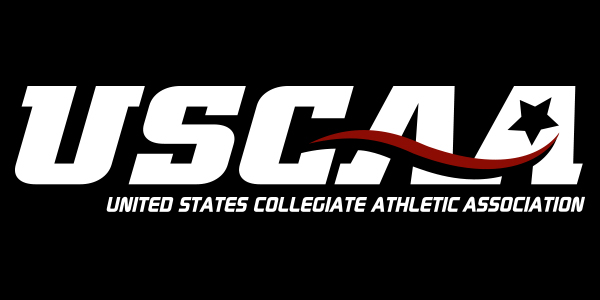Admission Information

Dr. Joseph Allotta
Associate Dean of Enrollment
ADMISSION POLICIES AND PROCEDURES
The procedures outlined below apply to all prospective students requesting acceptance to the College’s traditional, undergraduate, academic program. Applicants seeking admission to the TrinityQuest degree completion program should refer to the catalog section regarding TrinityQuest (page 90) for detailed program information and specific admissions procedures.
Equal Opportunity Policy
Trinity College of Florida admits qualified students who are personally committed to Jesus Christ. Students are admitted without regard to race, color, handicap, sex, age, or national or ethnic origin. Individuals are afforded all rights, privileges, programs, and activities generally accorded or made available to students at the College. Trinity College of Florida does not discriminate in the administration of its educational policies, admission policies, scholarship programs, athletic programs, or other school-administered programs.
Spiritual Requirements
Applicants to Trinity College of Florida:
1. Must profess faith in Jesus Christ as Lord and Savior
2. Must adhere to the historic foundational doctrines of the Christian faith (such as found in the Apostle’s Creed.)
3. Must demonstrate consistent Christian character
4. Must be engaged in regular church attendance
Academic Preparation
Trinity College of Florida recommends that applicants take a broad range of college preparatory classes at the secondary school level including:
1. Four units in English (including grammar and
composition)
2. Four units in math
3. Four units in science
4. Four units in social sciences, history, and/or humanities
5. Two units in a foreign language
Academic Recommendations
The preferred incoming student’s minimum grade point average is a 2.2 (4-point scale). Students are required to take either the ACT/CLT/SAT college entrance exam. The ACT/CLT/SAT score is a valued
element in the process of evaluating students seeking acceptance to Trinity College of Florida. Students electing to take the ACT should strive to achieve a composite score of 18. Students electing to take the SAT should strive to achieve a score of 980. Students electing to take the CLT should strive to achieve a score of 63. See the Transfer Students subsection for specific academic recommendations for applicants.
Admissions Process
To apply for admission to Trinity College of Florida, applicants should do the following:
1. Application | Submit the application for admission.
2. References | Applicants must submit a church reference and a personal reference. (Both non-relative). Complete in step 4 of your application.
• The church reference must be completed by a non-relative pastor or leader at your church.
• The personal reference should be completed by a non-relative (i.e. teacher, mentor, Guidance Counselor, co-worker, coach, etc.).
3. Essay | The essay should be completed on step 5 in your application. Please answer the following questions:
1) Describe your testimony of accepting Christ, explain how that changed your life, and how it currently affects the way you live.
2) What are your spiritual and academic goals? Describe how attending Trinity College will help equip you in achieving these goals?
4) In today’s world, Christianity can be described many different ways. In your own words describe what it means to be a Christian:
Include scriptures that support your answer?
Since all students at Trinity College are expected to maintain the highest standards of integrity, we require that your essay be your own work.
Essays can be submitted through the online application.
4. Applicants must have official high school and/or college transcripts mailed to Trinity College of Florida. Transcripts may be submitted electronically through a secure third party such as Parchment or Scribble.
• Contact your school/college to ask them to send your official transcripts directly to: Trinity College of Florida, 2430 Welbilt Blvd., Trinity, FL 34655
• Transfer students who have attempted less than 24 college credits are required to submit both high school and college transcripts.
5. ACT/SAT/CLT Scores | ACT, SAT, or CLT score reports are required for all applicants that have attempted less than 24 college credits.
• To have ACT score report sent, visit actstudent.org, college code: 4876
• To have SAT score report sent, visit collegeboard.org, college code: 1979
• To have CLT score report sent, visit cltexam.com/ No college code is required
Acceptance Status of New Students
Once a prospective student’s application is complete, the Admissions Committee will render a decision regarding admission to Trinity College of Florida. Any one of the following types of acceptance status may be granted to an applicant:
1. Full acceptance indicates an applicant has submitted all required materials, including official transcripts, official SAT, ACT and/or CLT scores (for first time students), references, and they have met all admissions standards. Fully accepted students are eligible to enroll in classes at the College for their starting semester.
2. Probationary acceptance indicates an applicant has submitted all materials, including official transcripts, official SAT, ACT or CLT scores (for first time students) and references, but does not meet
all admission standards. The applicant receiving probationary acceptance has demonstrated, by supporting documentation, their potential to succeed in college and, therefore, is eligible to enroll up to, but not to exceed, 12 credit hours of classes for their starting semester, and are subject to academic mentoring. Applicants granted probationary acceptance must earn a 2.0 or higher GPA during their first semester of study. Students earning a 2.0 or higher during their first semester of study will be removed from academic probation during their second semester. Students who do not earn a 2.0 or higher GPA during their first semester will be place on Level 2 probation during their second semester. Level 2 probationary students will be prohibited from participating in any extracurricular activities (sports, student groups, resident assistants, praise band, etc.) Students who do not earn a 2.0 or higher GPA during their second semester will be placed on final academic probation during their third semester.
3. Non-degree seeking acceptance indicates an applicant has been accepted and is eligible to enroll in courses for audit or to earn academic credit for certificate programs, transient study, or high school dual enrollment for their starting semester. Non-degree seeking students pursuing transient study or high school dual enrollment study may enroll up to, but not exceed 9 credit hours per semester for sophomores and juniors; 12 credit hours for seniors to earn academic credit unless exempted by the VP of Academic Affairs.
If an accepted student chooses not to enroll, his/her acceptance status will remain in effect for 3 consecutive semesters before they are required to reapply. Trinity College of Florida does not guarantee acceptance to any prospective student.
NOTE: High school dual enrollment students may be fully accepted upon graduation provided they have met all necessary requirements of the College and have maintained satisfactory academic achievement.
Dual enrollment students will not be required to have an ACT/SAT/CLT score for acceptance, however it is strongly encouraged
Denial
Denial indicates that a student has not met the requirements for acceptance into the College. Once an application is denied, that decision stands for one year (two semesters). If the prospective student wishes to apply again, he/she can do so for the start term that is one year from the start date for which he/she was originally denied. Students wishing to reapply must provide documentation explaining
what is different (spiritually or academically) since being denied. Documentation can include but is not limited to additional letter from current church leader, transcripts from another institution, additional
essays, etc.
Readmission after Withdrawal or Leave
1. Students who have not attended classes for a period of one semester may reenroll by contacting the Registrar’s Office.
2. Students who have not attended classes for a period of two semesters must submit a new application to the Admissions Office.
3. Any student who has been suspended from the College must submit a “Letter of Request for Admission” to the appropriate dean prior
to requesting application materials from the Admissions Office.
In all cases, the College reserves the right to require a new application, references, and/or additional documentation prior to readmission.
Transfer Students
Transfer students must submit official sealed transcripts from all previously attended colleges and/or universities in addition to the general application procedures outlined in this section. NOTE: High school transcripts and scores (ACT/SAT/CLT) do not need to be submitted if an applicant’s college transcript indicates a successful completion of an associate’s degree or has attempted at least 24 credits. The preferred transfer student’s minimum grade point average is 2.2 (4-point scale).
Dual Enrollment Students
Students grades 10-12 simultaneously earn credits toward their high school diploma and a college degree, in-seat or online (attending a traditional semester). Visit the dual enrollment website page trinitycollege.edu/dual-enrollment for the list of courses offered at the reduced price of $390.00 per course. Additional costs for books and other materials may be required.
High school students may take general education courses, including first and second-year Bible/theology courses. Courses not designated as dual enrollment (see the downloadable list on the dual
enrollment page) will be charged at the regular tuition rate of $515 a credit hour.
TCF academic requirements for admissions as a dual-enrolled student: Students must be at least a sophomore in high school and have at least a 3.0 GPA to take dual enrollment courses. They must also process through the normal admissions process with the exception of the required SAT/ACT/CLT tests.
Home-Schooled Students
Home-schooled applicants will use the standard college application. Transcript options available to home-schooled students are an umbrella high school transcript, parent-issued high school transcript. Essential elements of a parent-issued transcript include but are not limited to: All courses taken in ninth through twelfth grade (listed by year and semester), final course letter grades, final GPA (based on a 4-point scale), graduation date, teaching parent’s official signature and date.
International Students
International students should request a copy of the “International Student Information” packet. This packet details the process for application, lists the approximate cost of attendance and contains
all forms required for admission. Applicants may also visit the official website of the Department of Homeland Security: studyinthestates.dhs.gov. for more information.
In addition to the general requirements, international students whose primary language is not English must submit a score of 500 or above on the paper-based Test of English as a Foreign Language Examination (TOEFL) or 61 or above on the computer-based TOEFL.
If a decision to grant admission is rendered, the prospective student will be pre-registered and an I-20 Form will be issued.
Tuition & Residency Deposits
Upon notification of acceptance, students are required to submit a tuition and residency deposit (if applicable). The College requires a nontransferable, nonrefundable tuition deposit ($50.00). This deposit allows the College to officially register students for classes, issue their student identification number, and set up their College email account. This process occurs based on the order in which the College receives the deposit. Therefore, students should submit the tuition deposit promptly after receiving notification of acceptance.
Resident students are required to submit a residency deposit ($150.00). Room assignments are made based on the order the College receives the residency deposit. Therefore, it is imperative for students to submit this deposit promptly after receiving notification of acceptance. Please note, the residency deposit is refundable at the end of a student’s campus residency as long as there are no associated residency charges or damages.



